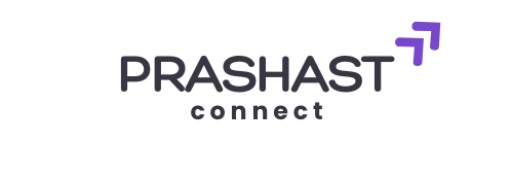Why Early Screening Matters: A Comprehensive Guide
Understanding Early Screening: A Crucial Step in Preventive Care
Early screening is a cornerstone of preventive care, enabling individuals to identify potential health issues before they escalate. By detecting conditions early, patients can take proactive steps to manage their health effectively.
Preventive care through early screening reduces the burden of chronic diseases, which often develop silently over time. For example, regular screenings for diabetes or hypertension can prevent complications like heart disease or kidney failure.
Healthcare providers emphasize early screening as a way to empower individuals to take control of their health. It fosters a culture of awareness and responsibility, ensuring that minor issues don’t turn into major health crises.
Incorporating early screening into routine healthcare visits is essential for maintaining long-term wellness. It’s not just about detecting diseases; it’s about building a proactive approach to health.
The Science Behind Early Detection
Early detection relies on advanced medical technologies and research to identify diseases at their earliest stages. This scientific approach ensures that interventions are timely and effective.
For instance, mammograms can detect breast cancer years before symptoms appear, significantly improving survival rates. Similarly, colonoscopies can identify precancerous polyps, preventing colorectal cancer altogether.
Biomarkers play a critical role in early detection. These biological indicators, such as specific proteins or genetic mutations, help doctors pinpoint diseases with precision.
Scientific advancements continue to refine early screening methods, making them more accurate and accessible. This progress underscores why early screening matters in modern healthcare.
Identifying Risks Before Symptoms Appear
One of the key benefits of early screening is its ability to identify risks before symptoms manifest. This proactive approach can save lives and improve quality of life.
For example, genetic testing can reveal predispositions to conditions like Alzheimer’s or certain cancers. Armed with this knowledge, individuals can make lifestyle changes or pursue preventive treatments.
Screening for high cholesterol or elevated blood pressure can prevent heart attacks and strokes, even in individuals who feel perfectly healthy. This underscores the importance of regular check-ups.
By identifying risks early, healthcare providers can tailor interventions to each patient’s unique needs, ensuring better outcomes and reduced healthcare costs.
How Early Screening Saves Lives
Early screening has a proven track record of saving lives. Detecting diseases in their infancy allows for timely treatment, often before irreversible damage occurs.
Consider cervical cancer screenings: Pap smears have reduced mortality rates by over 50% in countries with widespread screening programs. This is a testament to the life-saving power of early detection.
Similarly, early screening for lung cancer using low-dose CT scans has improved survival rates for high-risk individuals, such as smokers or those with a family history of the disease.
These examples highlight why early screening matters—it’s not just about detecting diseases; it’s about giving people a fighting chance to live healthier, longer lives.
The Economic Benefits of Early Screening
Early screening isn’t just good for health; it’s also economically advantageous. By catching diseases early, healthcare systems can avoid costly treatments for advanced conditions.
For instance, treating early-stage cancer is significantly less expensive than managing metastatic cancer. This cost-saving benefit extends to both patients and healthcare providers.
Employers also benefit from early screening programs. Healthy employees are more productive and require fewer sick days, reducing workplace disruptions and healthcare costs.
Investing in early screening is a win-win for individuals, businesses, and governments, making it a crucial component of sustainable healthcare systems.
Common Conditions Detected Through Early Screening
Early screening can detect a wide range of conditions, from chronic diseases to genetic disorders. Some of the most common include cancer, diabetes, and cardiovascular diseases.
For example, regular eye exams can identify glaucoma before vision loss occurs, while bone density tests can detect osteoporosis early, preventing fractures.
Screening for mental health conditions, such as depression or anxiety, is also gaining traction, highlighting the importance of holistic health approaches.
These screenings demonstrate why early screening matters—it’s about addressing health comprehensively and proactively.
Overcoming Barriers to Early Screening Access
Despite its benefits, early screening faces barriers such as cost, lack of awareness, and limited access in underserved communities. Addressing these challenges is essential.
Government initiatives, such as subsidized screening programs, can make preventive care more accessible to low-income populations. Education campaigns also play a vital role in raising awareness.
Telemedicine is another solution, bringing screening services to remote areas. Mobile clinics and community health programs further bridge the gap.
By overcoming these barriers, we can ensure that everyone understands why early screening matters and has access to life-saving preventive care.
The Role of Technology in Modern Screening Methods
Technology is revolutionizing early screening, making it more accurate, efficient, and accessible. Innovations like AI and machine learning are transforming diagnostics.
For example, AI-powered imaging tools can detect abnormalities in X-rays or MRIs with unprecedented precision, reducing diagnostic errors.
Wearable devices, such as smartwatches, can monitor vital signs and alert users to potential health issues, enabling early intervention.
These technological advancements underscore why early screening matters in today’s fast-paced world, where timely detection can make all the difference.
Early Screening Success Stories: Real-Life Impact
Real-life success stories highlight the transformative impact of early screening. Consider Sarah, a 35-year-old mother who discovered breast cancer through routine mammography. Early detection allowed her to undergo treatment and recover fully.
Another example is John, a 50-year-old man whose colonoscopy revealed precancerous polyps. Removing them prevented the development of colorectal cancer, saving his life.
These stories are a testament to why early screening matters—it’s not just about statistics; it’s about real people and their journeys toward better health.
Sharing these success stories can inspire others to prioritize early screening and take charge of their health.
Building a Culture of Proactive Health Awareness
Creating a culture of proactive health awareness starts with education. Schools, workplaces, and community centers can play a role in promoting early screening.
Healthcare providers can also encourage patients to prioritize screenings during routine visits, emphasizing their importance in preventive care.
Social media campaigns and public health initiatives can further spread the message, ensuring that everyone understands why early screening matters.
By fostering a culture of awareness, we can empower individuals to take control of their health and reduce the burden of preventable diseases.
FAQ: Why Early Screening Matters
- What is early screening?
- Early screening involves medical tests and evaluations to detect potential health issues before symptoms appear. It’s a proactive approach to preventive care.
- Why is early screening important?
- Early screening is crucial because it helps identify risks, enables timely treatment, and improves survival rates for various conditions.
- What conditions can be detected through early screening?
- Common conditions detected through early screening include cancer, diabetes, cardiovascular diseases, osteoporosis, and mental health disorders.
- How can I access early screening services?
- Access to early screening services varies by location. Check with your healthcare provider or explore community health programs for options.



